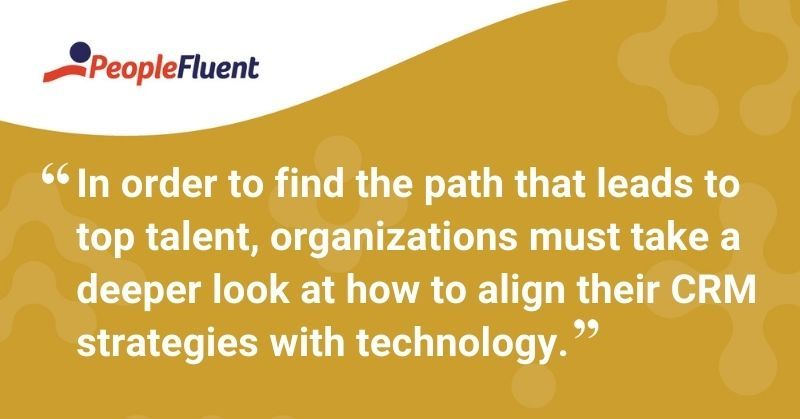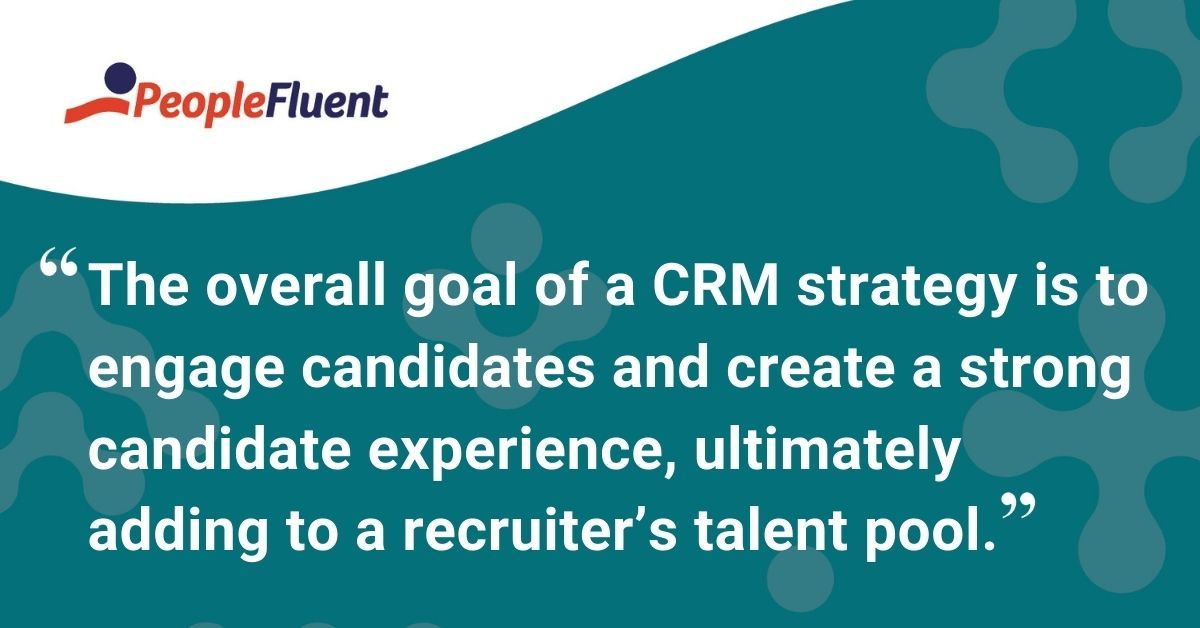Published: Sep 8, 2020Time to read: 5mins Category: Insights
Here’s How to Improve Candidate Quality and Hiring Speed With a CRM Strategy
Recruitment marketing is a valuable strategy for improving candidate quality and hiring speed—two critical elements your organization needs. From attracting the right talent to building relationships with passive candidates, a candidate relationship management strategy can help recruiters and hiring managers accelerate their efforts. Find out how a capable recruitment CRM solution can help increase hiring results.
With mobile phone usage up more than 50% since the start of the coronavirus pandemic, organizations might be missing an opportunity to engage prospective candidates through the use of a strong candidate relationship management (CRM) strategy. Texting with or sending automated alerts to candidates can help remind your organization’s future talent to complete a started application. Or give them another avenue to receive timely answers to decision-making questions. In order to find the path that leads to top talent, organizations must take a deeper look at how to align their CRM strategies with technology.
From attracting new customers with relevant information to increasing brand awareness and engagement, marketing is an essential function for growing any business. And, in order to quantify their efforts, marketing professionals need to be able to meet their customers where they are, at all times—not always an easy task for marketers. Whether they’re attracting customers on mobile, web, or email, a multi-channel approach is necessary. However, it’s critical to know what’s working and what’s not, regardless of the marketing strategy you choose.
Recruitment marketing, in essence, works the same way for recruiters and hiring managers looking to attract and engage candidates. Candidate relationship management is just one facet of becoming a successful recruitment marketer and growing your talent pool. In fact, Deloitte published a talent analytics report in 2018 that highlighted the benefit of using a CRM system—specifically as a means for companies to compile pertinent data and gain deeper insight into their talent pools.
Related reading: ‘5 Candidate Sourcing Strategies To Build Your Talent Pipeline’
What Is Candidate Relationship Management (CRM)?
Candidate relationship management is the process of curating and managing positive relationships with past, present, and potential job candidates. The overall goal of a CRM strategy is to engage candidates and create a strong candidate experience, ultimately adding to a recruiter’s talent pool. There are many ways to develop candidate relationships, but CRM solutions make it easier to facilitate and track across large enterprises.

You might also like: ‘How COVID-19 Has and Will Change Recruiting Strategies’
When Do I Need a Recruitment CRM Solution?
It can be challenging for in-house recruiters who’ve only used an applicant tracking system (ATS) to know whether or not they need a CRM solution. However, there are a few strong indicators that a candidate relationship management system may be needed.
To help focus your organization’s recruiting efforts and decide if a recruitment CRM is needed, consider the following:
- Recruiters spend an unnecessary amount of time handling administrative and/or process-related tasks.
- A large, untapped pool of candidates or applicants are not being engaged with or nurtured.
- Recruiters are actively sourcing candidates but hiring managers are encountering unqualified applicants more often.
- Candidates are being managed through the use of spreadsheets or other manual tools that lack the necessary functionality to convert them into hires.
Understanding why it’s time for a change and being able to effectively communicate the value of a recruitment CRM to decision-makers will require a strong business case. That’s why it’s critical to address current challenges and pain points in an objective and strategic manner. Having a list of reasons why a change is necessary is a helpful start, but take care to align these reasons with business goals and be sure to clearly state the expected return on investment.
More from the blog: ‘Increase Hiring Efficiency With These 4 Best Practices’
How To Choose the Best Recruitment CRM
During the bidding process for any type of HR software, it’s important to ready a list of “must-haves” and “nice-to-haves” to discuss with vendors. Gathering feedback and data about specific recruitment challenges your company may encounter—in the present and throughout the next 12 months—will help guide the process.
Here are a few examples of the essential features that a top recruitment CRM system should have:
- Automated email and SMS tools with read receipts
- Customizable templates for bulk communications (e.g. questionnaires or information request forms)
- Automated marketing and nurture campaigns to help increase candidate response
- Job marketing, advertising, and distribution to facilitate and track multi-channel outreach
- Robust analytics and tracking capabilities for easy reporting
Regardless of what the list looks like, a CRM solution should be able to solve for your organization’s business priorities and make it easier to find and hire the best possible talent.

Keep reading: ‘4 Practical Ways to Recruit Diverse Talent’
How To Get the Most Out of Your CRM Solution
Organizations should be focused on effectively telling their unique brand story on career sites to set a baseline candidate experience. This includes highlighting the company culture, success stories from employees in the business, and messaging that shows candidates what it’s like to be part of your company.
Once your employer branding is established, lean into the functionality of a CRM solution to handle the ongoing management of your career sites. By automating daily tasks—like tracking candidate communications or identifying which sources your quality hires are coming from—recruiters and hiring managers will have more time to focus on creating an exceptional candidate experience and engaging with passive candidates.
Recommended reading to download today: '5 Recruiting Metrics that Drive Business Value'